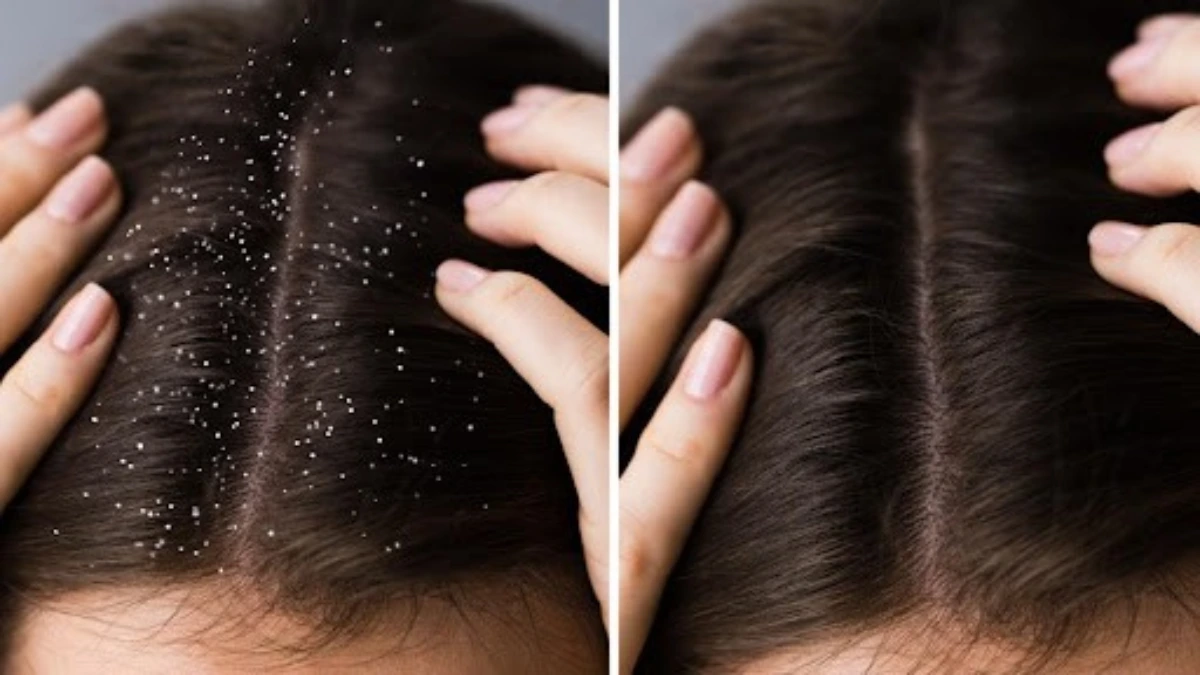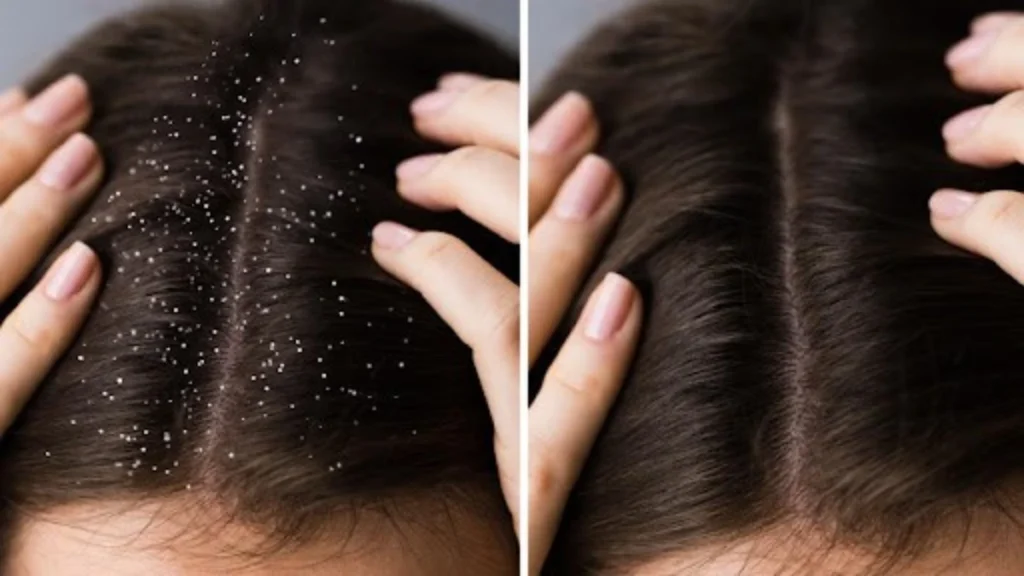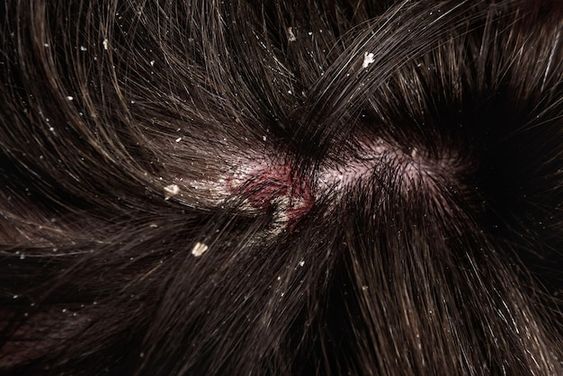

Dandruff is a common scalp condition that affects approximately 50% of the population at some point in their life. While it may seem like a minor cosmetic concern, the visible flakes, itching, and discomfort can significantly affect one’s confidence and quality of life. Fortunately, dandruff is highly treatable with proper care and the right treatment options. In this comprehensive guide, we will explore the causes, symptoms, and most effective dandruff treatments to help you manage this common condition.
Hair health is not just about aesthetics; it’s an integral part of our overall well-being. Hair clinics play a crucial role in diagnosing and treating a variety of hair and scalp issues, providing specialized care and advanced treatments. This article explores what hair clinics are, the services they offer, and how they can benefit those struggling with hair problems.
What Is Dandruff?
Dandruff, or pityriasis capitis, is the shedding of dead skin cells from the scalp. Under normal circumstances, the skin’s outer layer continually renews itself by shedding dead cells. However, in people with dandruff, this process accelerates, resulting in visible flakes. These flakes often become more noticeable on dark clothing or hair. The condition can be mild, with only small flakes of dry skin, or more severe, involving large patches of greasy, inflamed skin.
Common Causes of Dandruff
Dandruff can arise from several factors, and understanding these underlying causes is crucial for effective treatment:
- Dry Skin: One of the most common causes of dandruff, especially in the winter months, is dry skin. A dry scalp can lead to the formation of flakes, which are typically smaller and less oily.
- Seborrheic Dermatitis: This is a more severe form of dandruff and is characterized by inflamed, red, and greasy patches of skin. Seborrheic dermatitis can occur not only on the scalp but also in areas such as the face, chest, and behind the ears. The cause of this condition is linked to an overgrowth of a yeast called Malassezia, which thrives in oily environments (Mayo Clinic).
- Malassezia Yeast Overgrowth: This naturally occurring fungus feeds on the oils produced by the scalp. When its growth becomes excessive, it can lead to scalp irritation and increased skin cell turnover, causing flakes.
- Skin Conditions: Conditions like psoriasis and eczema can also contribute to dandruff. Psoriasis often causes localized patches of thick, scaly skin, while eczema may result in inflammation and itching.
- Improper Hair Care: Overuse of harsh hair care products, infrequent washing, or using products that contain harsh chemicals can lead to scalp irritation, exacerbating dandruff.
Types of Dandruff
Dandruff can vary in severity and presentation. The two primary types are:
- Dry Dandruff: Characterized by small, dry flakes that appear on the shoulders, especially when wearing dark clothing. This form of dandruff is typically linked to dry skin.
- Oily Dandruff (Seborrheic Dermatitis): This more severe form of dandruff is accompanied by oily patches, redness, and larger flakes. The scalp may appear greasy and inflamed.
Symptoms of Dandruff
The primary symptom of dandruff is the shedding of dead skin cells from the scalp. These flakes can vary in size and texture, depending on the type and severity of dandruff. Other common symptoms include:
- Itching: Often associated with both dry dandruff and seborrheic dermatitis, itching is a prevalent symptom. It may worsen as the flakes increase in size or as the scalp becomes more irritated.
- Redness and Inflammation: In more severe cases, such as seborrheic dermatitis, the scalp may become inflamed, itchy, and painful.
- Greasy or Dry Scalp: While some individuals experience a dry scalp with dandruff, others may notice an oily scalp that contributes to the formation of greasy flakes.
How to Treat Dandruff: Effective Solutions

The good news is that dandruff is highly treatable, with various treatment options available to help manage the condition. Here’s a detailed look at the most effective ways to treat dandruff.
1. Medicated Shampoos
Medicated shampoos are often the first line of treatment for dandruff. They contain active ingredients designed to tackle the underlying causes of dandruff, including yeast overgrowth, scalp inflammation, and oil buildup. Some of the most common active ingredients found in anti-dandruff shampoos include:
- Zinc Pyrithione: A widely used antifungal agent that reduces the growth of yeast on the scalp, making it effective for mild to moderate dandruff (Healthline).
- Selenium Sulfide: This ingredient helps to slow the rate at which skin cells are shed and reduces the production of oils that contribute to dandruff (Mayo Clinic).
- Piroctone Olamine: A newer antifungal agent that is gentler on the scalp and has fewer side effects compared to older treatments like zinc pyrithione (WebMD).
- Tar-Based Shampoos: Coal tar is a potent ingredient used for more severe scalp conditions like seborrheic dermatitis and psoriasis. While effective, tar shampoos can have a strong odor and may cause irritation in some individuals (Mayo Clinic).
2. Natural Remedies for Dandruff
In addition to medicated shampoos, several natural remedies can help alleviate dandruff symptoms. These remedies work by addressing scalp health, reducing inflammation, and managing fungal growth.
- Tea Tree Oil: Tea tree oil is a natural antifungal and antibacterial agent that can help reduce dandruff by controlling the overgrowth of yeast on the scalp. Simply add a few drops to your shampoo or mix with carrier oils like coconut or olive oil for a scalp massage (Mayo Clinic).
- Apple Cider Vinegar: Known for its pH-balancing properties, apple cider vinegar can help regulate the scalp’s acidity and reduce fungal growth. Dilute it with water and apply it to your scalp as a rinse (Healthline).
- Coconut Oil: Rich in fatty acids and antioxidants, coconut oil can hydrate the scalp and reduce irritation. It has antifungal properties that can help fight the yeast responsible for dandruff (WebMD).
3. Topical Treatments for Severe Cases
If dandruff is severe or unresponsive to over-the-counter shampoos, doctors may recommend topical treatments that help reduce inflammation and fungal growth.
- Corticosteroid Creams: These prescription-strength creams can reduce inflammation and alleviate symptoms of seborrheic dermatitis and severe dandruff (Healthline).
- Salicylic Acid: This keratolytic agent helps remove excess scalp flakes and is often included in shampoos or topical treatments for stubborn dandruff (Mayo Clinic).
4. Home Care Tips to Prevent Dandruff Flare-Ups
In addition to treatments, lifestyle changes can play a significant role in controlling dandruff and preventing flare-ups:
- Shampoo Regularly: Consistent washing with a mild, medicated anti-dandruff shampoo can help keep dandruff under control. Avoid skipping washes, as infrequent washing may lead to an accumulation of oils and flakes.
- Avoid Harsh Hair Products: Stay away from hair products that contain alcohol or harsh chemicals, as they can dry out and irritate the scalp.
- Manage Stress: Emotional stress can exacerbate dandruff symptoms, so practicing stress management techniques like meditation, yoga, or regular exercise can help prevent flare-ups (Healthline).
- Maintain a Healthy Diet: A diet rich in vitamins, minerals, and omega-3 fatty acids can support scalp health. Zinc and B vitamins are particularly important for maintaining healthy skin and hair (WebMD).
5. When to See a Doctor
While dandruff is often manageable with home remedies and over-the-counter treatments, some individuals may need medical intervention. Consider consulting a dermatologist if:
- The dandruff is severe or persistent despite using anti-dandruff products.
- The scalp becomes inflamed, sore, or develops sores.
- There are other symptoms such as hair loss, redness, or pus-filled lesions.
A healthcare provider can help diagnose the underlying cause of dandruff and recommend the best treatment options.
Dandruff Prevention Tips
Preventing dandruff is possible with a few simple habits. Here are some key tips to maintain a healthy scalp:
- Use Anti-Dandruff Shampoos: If you’re prone to dandruff, incorporating a medicated shampoo into your regular hair care routine can help keep the condition under control.
- Avoid Scratching: Scratching your scalp can irritate the skin, leading to further inflammation and worsening dandruff. Use gentle products and massage your scalp with your fingertips to reduce itching.
- Stay Hydrated: Proper hydration is essential for healthy skin, including the scalp. Drink plenty of water throughout the day to keep your skin and scalp moisturized.
- Protect Your Scalp from the Sun: Sun exposure can exacerbate dandruff and skin irritation. Wear a hat when spending long periods outdoors to protect your scalp from harmful UV rays.
Dandruff Treatment: Medicines and Treatment Options
| Treatment | Active Ingredient | How It Works | Used For |
|---|---|---|---|
| Anti-Dandruff Shampoos | Zinc Pyrithione | Reduces the growth of yeast and controls scalp flaking. | Mild to moderate dandruff, effective for regular use. |
| Anti-Dandruff Shampoos | Selenium Sulfide | Slows skin cell turnover and reduces oil production. | Moderate to severe dandruff, seborrheic dermatitis. |
| Coal Tar Shampoos | Coal Tar | Slows down the production of skin cells and reduces inflammation. | Severe dandruff and psoriasis. |
| Ketoconazole Shampoos | Ketoconazole | Antifungal properties that treat yeast overgrowth on the scalp. | Fungal-related dandruff, seborrheic dermatitis. |
| Topical Corticosteroids | Hydrocortisone | Reduces scalp inflammation and redness caused by dandruff or dermatitis. | Inflammation and irritation due to dandruff. |
| Topical Antifungal Creams | Clotrimazole, Miconazole | Treats fungal infections by reducing yeast growth. | For fungal causes of dandruff and seborrheic dermatitis. |
| Salicylic Acid Treatments | Salicylic Acid | Exfoliates the scalp, removing flakes and reducing buildup. | Severe dandruff or thick, scaly flakes. |
| Oral Medications | Antifungal Medications (Fluconazole) | Treats severe, persistent dandruff caused by fungal infection. | Chronic seborrheic dermatitis or yeast-related dandruff. |
| Tea Tree Oil | Tea Tree Oil | Natural antifungal and antibacterial agent that soothes the scalp. | Mild dandruff, scalp irritation. |
| Apple Cider Vinegar Rinse | Apple Cider Vinegar | Balances the scalp’s pH and reduces yeast overgrowth. | Mild dandruff, itchy scalp. |
Dandruff is a common scalp condition that can be managed with proper treatment, including medicinal shampoos, topical treatments, and oral medications. Below is a table of common dandruff treatments, their active ingredients, how they work, and when they are typically used.
Explanation of Common Active Ingredients:
- Zinc Pyrithione: This ingredient helps to combat the overgrowth of the Malassezia yeast that is often responsible for dandruff. It’s commonly found in over-the-counter shampoos.
- Selenium Sulfide: Often used in treatments for seborrheic dermatitis, it not only controls the growth of fungi but also helps with excessive oil production on the scalp.
- Coal Tar: Coal tar-based shampoos are effective for controlling scalp conditions like psoriasis, as it helps slow down the production of skin cells and reduces the thickness of flakes.
- Ketoconazole: An antifungal agent that is highly effective against dandruff caused by fungal infections. Ketoconazole shampoos are often recommended for persistent dandruff when other treatments fail.
- Corticosteroids: These topical treatments are helpful in reducing inflammation caused by severe dandruff, seborrheic dermatitis, or psoriasis.
- Salicylic Acid: A keratolytic agent, salicylic acid works by softening and shedding the scalp’s dead skin cells. It’s particularly helpful for individuals with thick, scaly flakes.
- Tea Tree Oil: This natural remedy is a gentle yet effective solution for dandruff, particularly when the condition is mild. Its antifungal properties help combat Malassezia yeast.
- Apple Cider Vinegar: Known for its balancing properties, apple cider vinegar works by adjusting the scalp’s pH level and inhibiting fungal growth.
Tips for Effective Dandruff Treatment:
- Consistency: Use dandruff treatments regularly as per instructions to see optimal results.
- Avoid Over-Washing: Over-washing can strip the scalp of natural oils, leading to dry scalp and worsening dandruff.
- Hydrate: Drinking enough water can support scalp health, reducing dryness.
- Balanced Diet: Eating foods rich in vitamins and minerals, especially zinc and B-vitamins, can help support scalp health.
If your dandruff persists despite using these treatments, it may be a sign of a more severe scalp condition like seborrheic dermatitis or psoriasis, and you should consult a dermatologist for further evaluation and prescription treatment.
Conclusion
Dandruff is a common yet manageable condition that can be treated effectively with the right approach. Whether through medicated shampoos, natural remedies, or lifestyle changes, there are plenty of options available to help you achieve a healthier, flake-free scalp. If dandruff persists or worsens, consulting with a healthcare professional can help ensure that you receive the most appropriate treatment.
With consistent care and the right treatment plan, you can manage dandruff and enjoy a clearer, more confident scalp.


[…] Read more: Dandruff Treatment A Complete Guide to a Healthier Scalp […]
[…] 1 cup coconut oil […]